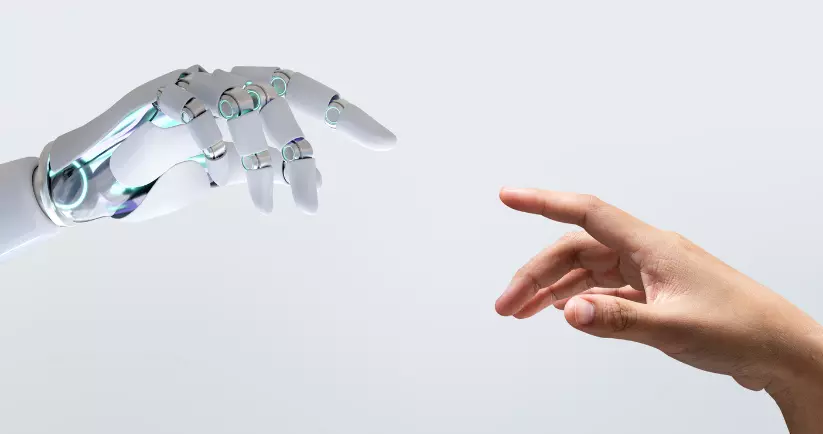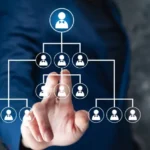Artificial intelligence no longer is just a fantasy or buzzword, it is the day-to-day reality of our world now. A significant percentage of employees in most fields use some sort of AI assistance to improve the efficiency and quality of their work.
The same goes for using AI in HR, the tools like applicant tracking systems are improving the productivity of human resources over the years.
But before we discuss the aspects such as benefits, tools, applications and various challenges in implementing artificial intelligence in human resources let’s discuss what we mean by AI in human resources.
What is AI in HR?
Artificial intelligence is the term we use to refer to technology that is capable of decision-making independent of human involvement where machines don’t need direct instructions.
When we say artificial intelligence or AI we are often referring to various closely related concepts and the combination of many such as machine learning, cognitive computing and predictive analysis working together in a system.
AI uses the training information given to the system to understand the patterns and correlations so it can make predictions in future.
AI in HR tech uses observations in the surroundings to be able to make decisions related to human resource management. That way you can also ensure the future of the company will always have the necessary skills to maintain productivity and make progress.
Role of AI in HR
There is a significant role of AI in HR companies as artificial intelligence in human resources helps HR to streamline processes and increase efficiency.
You can use it to automate all the repetitive and time-consuming tasks such as attendance and payroll to save HR’s productive time.
That time then can be used in tasks where the presence of human intelligence is essential such as strategic development and conflict management.
So, AI and HR together can take care of all the mundane tasks as well as simplify the complicated ones to increase the productivity of a company.
Also Read:
Benefits of AI in HR
There are multiple benefits to using artificial intelligence in HR processes. Let’s discuss some ways in which artificial intelligence can significantly benefit organizations.
1. Remove Bias
Artificial intelligence in HR helps to ensure data-based decisions in crucial processes such as recruitment, performance management as well as leadership planning.
HR has to be conscious that the background of the candidate does not affect hiring decisions or career progression for the employees.
Artificial intelligence in the HR process of selection can ensure an unbiased selection of candidates through every type of screening.
The human resource department needs to ensure uniform treatment for all employees at all levels. Fair decisions are essential to build an inclusive workplace and ensure that employees are satisfied with the company and feel valued for their work.
2. Employee Satisfaction
With artificial intelligence, you can give your employees a personalized experience. Their queries are solved faster with the help of an AI-powered chatbot.
Employees don’t have to wait for an appointment with HR or wait for a reply to their email for mundane queries. In addition to that employees get personalized onboarding as well as training suggestions.
AI and HR tools also help employees in their career planning further enhancing their experience which leads to employee engagement and satisfaction.
3. Better Efficiency
Companies using AI in HR tech can increase the efficiency of the human resource department.
AI automates most repetitive tasks such as attendance and leave management and eliminates the paperwork. HR gets correct data as the human involvement is reduced so are the errors.
4. Reduced Costs
The application of artificial intelligence ensures reduced time and workforce investment in manual record-keeping or documentation.
In addition to that the HRMS software gives you correct data and calculations that saves you additional cost in correction, for the processes such as payroll and performance management.
Furthermore, lesser workforce requirement in manual processes and corrections brings down your cost.
5. Informed Decisions
AI tools in HR help you to store data systematically in a centralized data depository. That data can be accessed easily by human resources and other stakeholders whenever required.
Having correct data at hand helps you make decisions based on facts and prevent misunderstandings or biases. Simplified analytics helps you to make profitable and practical strategic decisions.
Use of AI in HR Functions
Artificial intelligence can be used for multiple functions in human resources. Companies using AI in HR in India can improve their productivity significantly.
Furthermore, adapting to technology such as machine learning in HR and predictive analytics early with AI can help firms to gain a competitive advantage in the market and take some major cost-effective steps.
➔ AI in Payroll
Most companies use AI in HR tech for payroll processing with automation. As payroll is one of the crucial yet most complicated processes for businesses using artificial intelligence for the payroll will tremendously increase their efficiency.
It’s a time-consuming complicated process and doing it manually means errors, more effort and time. Furthermore, there is additional time that has to be invested in correcting those errors.
Using AI-powered software to automate the process enables to auto-track and fetch the relevant data correctly from systems such as attendance management.
It also validates the data according to pre-set criteria so your human resource department doesn’t need to go through it multiple times, saving you a lot of productive time and effort.
➔ AI in Recruitment
Unsurprisingly, human resources management is always eager to implement AI in recruitment. AI can help to streamline the complicated process for better results. The process starts with the job post and goes on till onboarding the employee. The workforce is crucial for organizations to be productive and grow in business.
AI can be used for resume screening so that HR professionals do not have to manually go through every application to shortlist eligible candidates. HR departments can go further to use AI in interview scheduling. It can keep candidates updated.
➔ AI in Performance Management
Performance management is a crucial process in any organization. It has to be done at regular intervals and it also needs to be unbiased to make it effective. Unfortunately, most organizations do reviews once or twice a year which do not portray complete pictures.
Since humans are prone to the ‘Halo Effect’ or ‘Recency Bias’ the reviews are often heavily influenced based on recent events or the first impression about the person.
Furthermore, most firms carry out performance reviews as a formality and employees respond with the same attitude which makes the entire exercise futile.
Using artificial intelligence in human resources for performance management can be revolutionary to provide a fair appraisal to employees. Machine learning in AI tools can track employee performance throughout the year to provide unbiased and on-demand reviews.
AI can help HR to identify the employees who are likely to leave the company as well as employees with great potential which can be valuable information for human resources for succession planning in the organization.
➔ AI in Employee Engagement
Employee engagement has a significant impact on the productivity of a company. The better the engagement, the more the work output, that’s why firms are now looking forward to using AI for employee engagement.
Most organizations rely on surveys to understand the level of engagement. These surveys are often boring and fail to check the real situation due to limited options. In addition to that, there’s too much time wasted between releasing surveys and collecting data, often making it too late till you finally figure out the analytics.
While AI can be very advanced when it comes to identifying the level of engagement a person has at work, HRs can use natural language processing in the form of HR chatbot to gauge employee motivation.
➔ AI in HR Analytics
AI in HR is great news when it comes to analytics. Artificial intelligence can automate tracking data from various platforms, and sort and store it in a central depository.
In addition to that, AI can analyse vast amounts of data to provide real-time insights that are difficult to analyse for human eyes. That saves a lot of productive time for the human resource department.
The AI systems can also use their productive analysis to detect the possibility of employees leaving the firm and also the future leaders in the company. This way artificial intelligence can play a significant role in the decision-making for organizational strategies.
➔ AI in Employee Onboarding
The onboarding process is essential for the employee experience as this is one of the initial and prime impressions that the employee carries for a long time. You can use AI to share various regulations with the employee, detailed job descriptions, and training schedules.
In addition to that, artificial intelligence can be used to share relevant candidate information with teammates as well as the team’s information with the new member.
That way AI in HR streamlines the onboarding for the employee as well as eliminates significant paperwork by allowing the employee to upload the documents.
➔ AI in Talent Acquisition
Talent acquisition is one of the most difficult tasks for the HR department. AI can gauge future employee needs for the organization and shortlist the pool of potential candidates that the company receives for future use.
Artificial intelligence can also be used to conduct primary screening by asking questions and gathering information about their skills, education as well as experience. In addition to that AI can be used to stay connected to potential talent for the company.
Also Read:
Disadvantages and Challenges of AI in HR
There is no doubt that the use of AI in HR tech improves the productivity of the department in many ways. But there are a few disadvantages of AI in HR that need to be considered while making decisions.
1. Data Security
The human resource department is responsible for a lot of personal and financial information of their employees. While implementing artificial intelligence for data management you need to be careful of privacy concerns and ensure that AI and HR collaboration understands data privacy while answering queries.
There have to be enhanced privacy and data security guidelines to ensure that this database is handled responsibly, accessible to only authorized people and for official use only. In addition to that the software should safeguard data from hackers.
2. Skill Gap
If you intend to implement artificial intelligence in human resources you need people in the organization who could operate those tools. The fastest and most efficient technology will be of no use if your HR can’t use it effectively.
The HR AI tools are comparatively new for human resources and there are not enough skilled employees in the department making optimum utilization of this potential a major challenge.
Impact of AI on HR
The impact of AI in HR functions is that it significantly increases effective employee management at the workplace.
As a result, HR can focus on more intellectual work such as employee engagement, satisfaction and building supportive and productive work culture.
Also Read:
AI in HR Statistics
Let’s look at some numbers to understand the present and future implementation of artificial intelligence in human resources. AI in HR statistics loudly expresses the quick adaptation of artificial intelligence and human resources collaborations.
- According to Eightfold AI’s report The Future of Work: Intelligent by Design, over 70% of surveyed leaders are already utilizing AI across various HR functions. Additionally, 92% of HR leaders plan to further increase AI adoption in at least one HR area within the next 12 to 18 months.
- IDC’s Future of Work 2022 research predicts that by 2024, 60% of global 2000 businesses will deploy AI and machine learning (ML) tools. Among these organizations, 80% are expected to employ AI-enabled “managers” for tasks like hiring, firing, and employee training.
- Social.com reveals that 60% of respondents use AI for talent management in their organizations. Furthermore, 44% believe AI will optimize recruiters’ time, and 79% of recruiters foresee AI’s advancement to the extent of autonomously conducting applicant hiring and employee termination processes.
AI Trends in Human Resources (HR)
➔ AI-Driven Recruitment
AI is increasingly being used to analyse resumes, conduct automated video interviews, and assess candidate fit based on various parameters, reducing bias and improving the efficiency of the recruitment process.
➔ Employee Engagement and Sentiment Analysis
HR AI tools are being utilized to analyse employee sentiments through surveys, feedback, and social media interactions. This data helped HR teams identify areas of concern, gauge employee satisfaction, and take proactive measures to enhance engagement.
➔ Personalized Learning and Development
AI-powered learning platforms are gaining popularity, providing personalised training and development plans based on individual employee needs, preferences, and performance data.
➔ AI-Powered Chatbots
AI chatbots were being integrated into HRMS software to handle routine employee queries, offer quick responses, and provide 24/7 support, enhancing the overall HR service experience.
Also Read:
5 Best AI Tools for HR
There are multiple tools that HR can use to streamline their process and increase productivity by taking a strategic approach. Here are a few tools that HR can leverage. The number of tools and technology is expected to keep advancing as the impact of AI in HR keeps on increasing.
1. Pocket HRMS
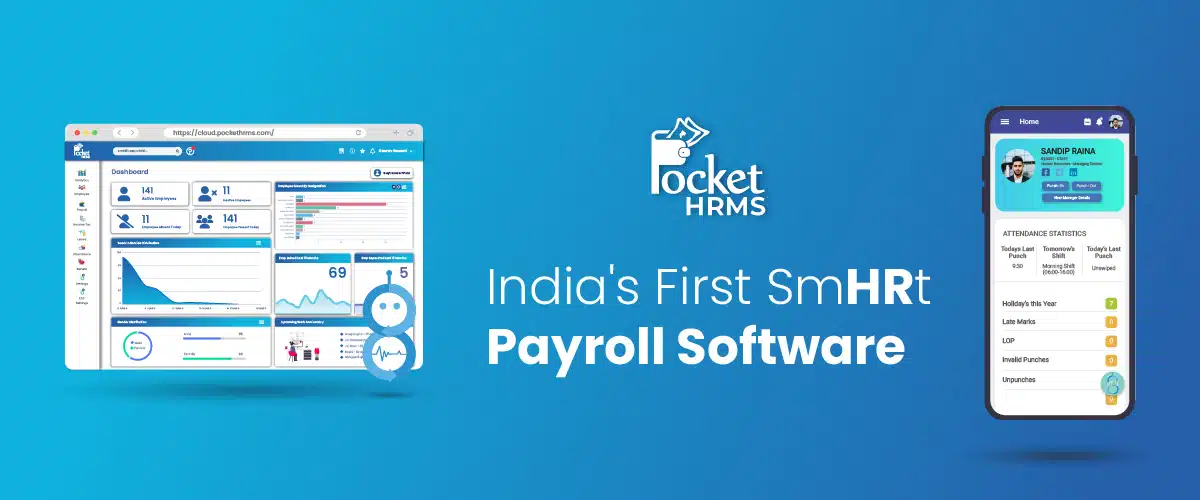
It is one of the most advanced AI tools in HR with a comprehensive solution that uses artificial intelligence and natural language processing to answer employee queries. It helps HR to streamline their talent and recruitment management.
Pocket HRMS also AI and machine learning in HR to perform the payroll processing so it can identify and learn from the modifications made to detect patterns better. That results in faster processing and better accuracy with lesser effort.
2. Talocity
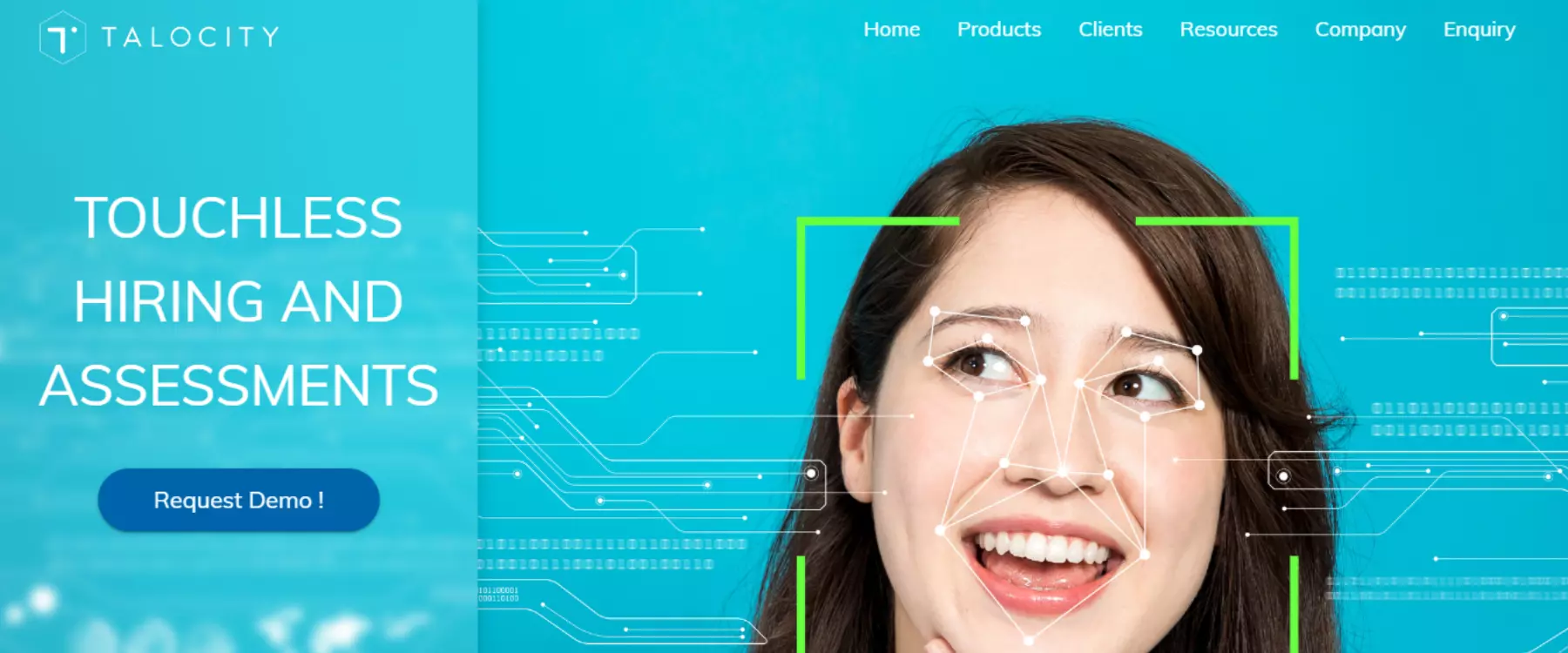
Talocity is another AI tool for HR that uses an AI-driven talent acquisition platform that helps streamline the hiring process.
It uses AI and natural language processing (NLP) to assess candidate resumes, conduct video interviews, and analyse facial expressions and language patterns to gauge candidate suitability.
The platform aims to reduce hiring biases and improve the overall efficiency of recruitment, making it a preferred choice for many Indian companies.
3. Leena AI
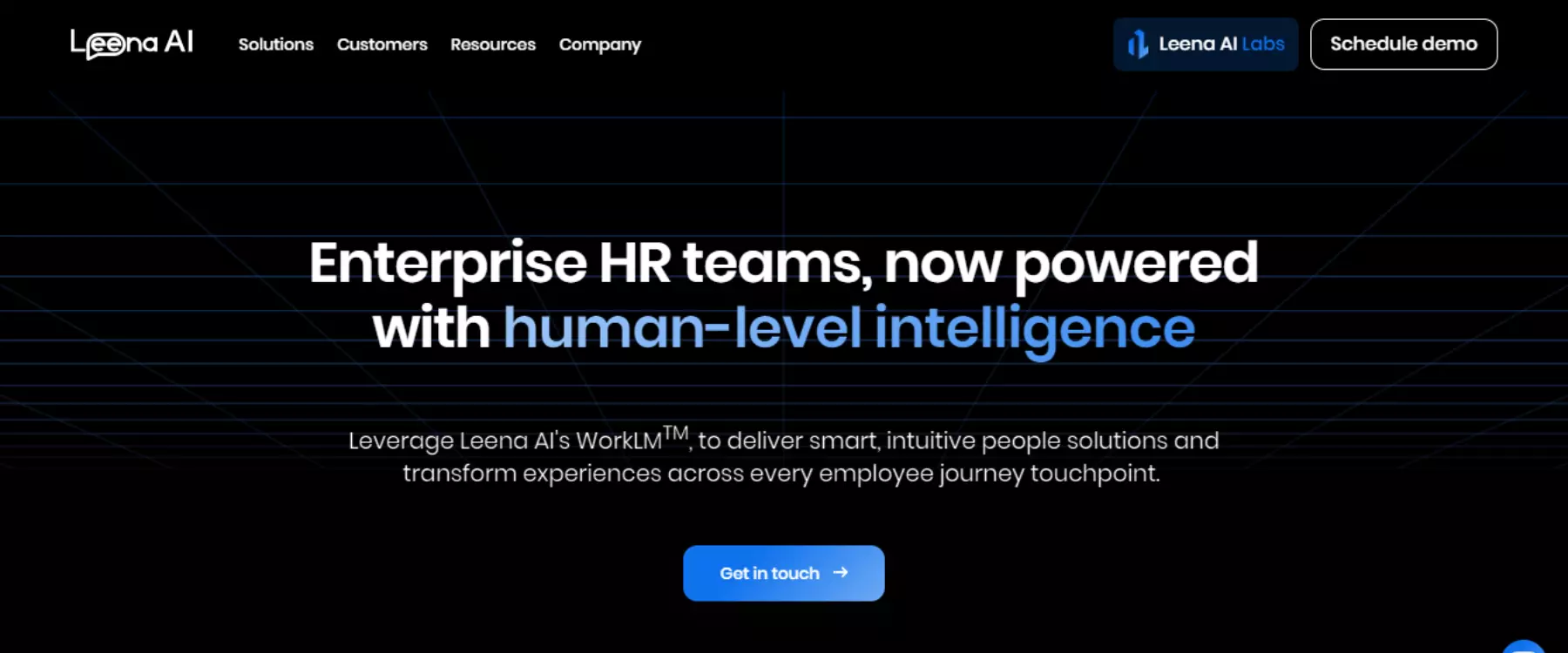
Leena AI is a chatbot platform designed to assist HR teams in managing employee queries and improving communication within organizations.
It leverages AI to understand and respond to various HR-related questions, such as leave policies, benefits, and payroll inquiries. By automating responses to routine queries, Leena AI helps HR professionals focus on more strategic tasks and enhances employee engagement.
4. PeopleStrong
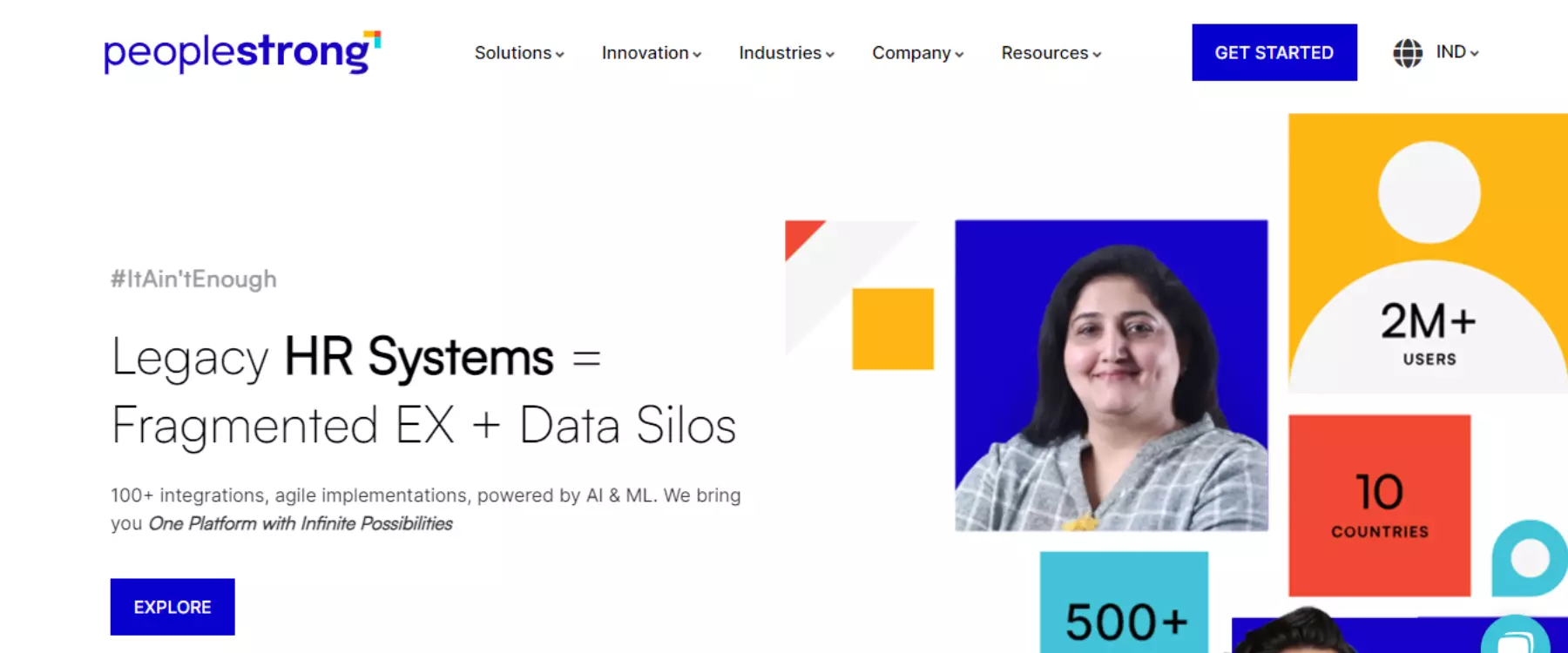
PeopleStrong is a comprehensive HR SaaS platform that incorporates AI capabilities to streamline various HR processes.
It offers modules for recruitment, onboarding, payroll management, performance management, and more. With AI-driven analytics and insights, PeopleStrong Alt empowers HR teams to make data-driven decisions and improve workforce productivity.
5. HROne
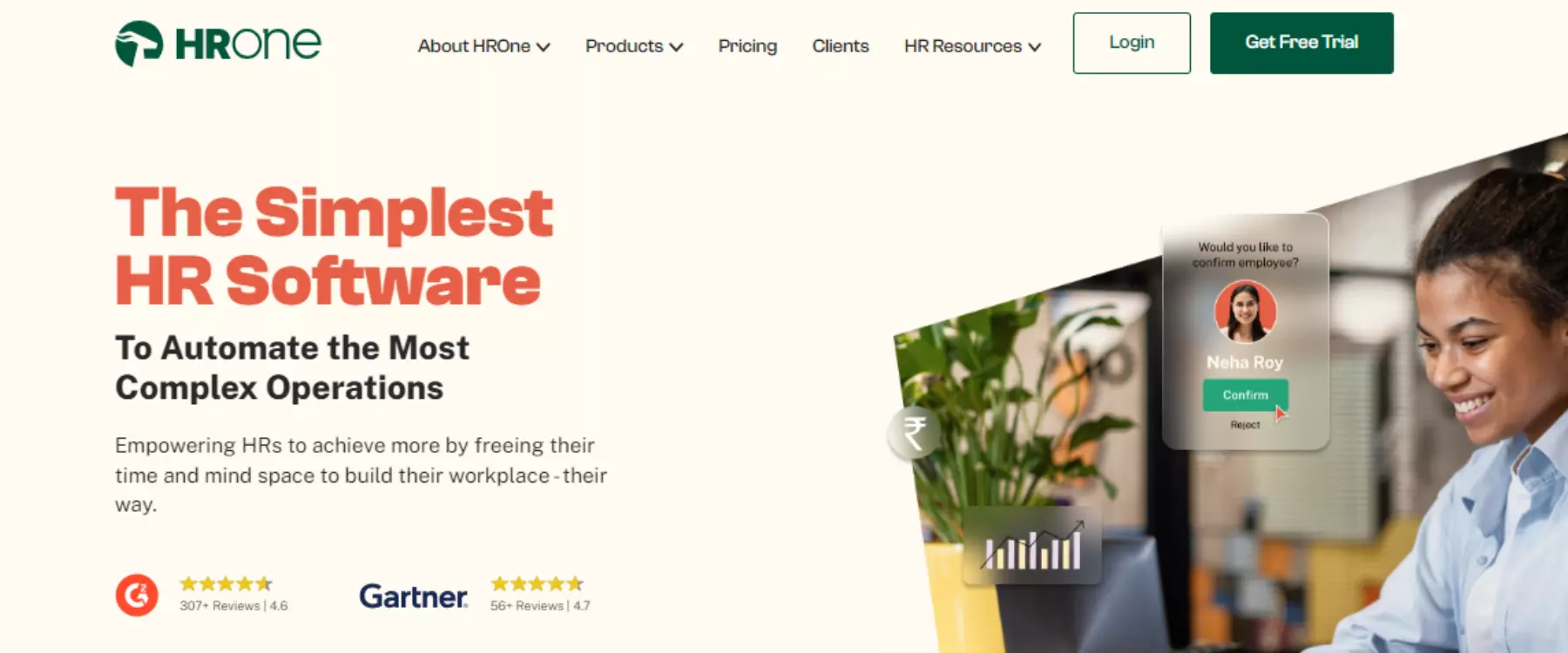
HROne is an AI-powered HR platform that aims to automate HR tasks and enhance employee experience. It offers modules for recruitment, attendance management, leave and expense management, and performance appraisal.
Through AI-driven data analysis, HROne assists HR teams in making data-backed decisions, improving employee engagement, and optimizing HR processes.
Future of AI in HR Tech
The future of AI in HR definitely holds numerous possibilities as technology keeps evolving continuously. Artificial intelligence is expected to be of even greater significance for increasing the efficiency of the HR process and improving employee engagement.
Artificial intelligence is going to be more advanced to understand the moral use of the data as well as upgrade the data privacy algorithm so it can overcome present challenges.
In addition to that AI technology is expected to keep on improving the present HR tools such as those used in recruitment, performance management, chatbots and more.
Frequently Asked Questions (FAQ)
1. How is AI used in HR?
Ai is used for a wide range of tasks and processes in HR such as data management, screening resumes, payroll process, onboarding as well as performance management.
2. What are the benefits of AI in HRM?
There are multiple benefits of using artificial intelligence in HR for people management. Companies using AI in HR in India now can witness error-free calculations, better speed for various processes and simplified analytics. AI can help HR not just increase productivity in the present but also to prepare for the future.
3. Will AI replace HR?
Artificial intelligence in HR is no replacement for human resources. AI can significantly increase efficiency in people management with advanced data analysis. But when it comes to decisions we need HR personnel to use their emotions and intelligence together to make the right ones.
4. How AI is transforming the future of HR?
AI can analyse data across various official platforms as well as behavioural patterns to analyse and predict various aspects related to work such as engagement, need for training or the likelihood to leave their job soon.
5. Which company uses AI in HR?
Many organisations are quick to adapt and develop enhanced products with AI. Pocket HRMS has to be one such progressive company which integrated AI and machine learning in HR for their tool called smHRt payroll. It enables HR to do the correct payroll within minutes. In addition to that, they also have an AI-powered chatbot that uses natural language processing to resolve employee queries.
6. How AI is reinventing HR?
Artificial intelligence reinvents human resources in many ways with the advances of machine learning and predictive analysis. Among several benefits of AI in HR tech is that it enables human resources to identify the trends and patterns that were too difficult to detect for humans & need a massive investment of time and effort. With AI, human resources can be much more effective in crucial functions such as talent management and retention rate.
Conclusion
Companies using AI in HR need to be careful to choose the right tools so they can rip the benefits of AI in HR. In addition to the numerous possibilities that HR tools offer there are challenges of AI in HR.
The best approach will be to analyse the needs of your human resources and then compare the available options. Take the necessary measures for data privacy and ensure that you don’t neglect the importance of human intellect and emotion in decision-making.

